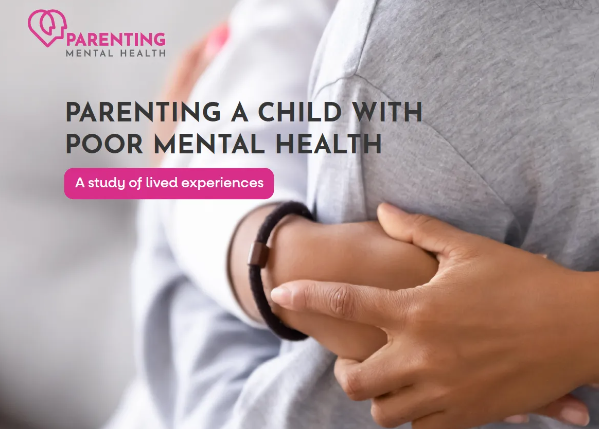A recent study has highlighted the significant challenges faced by millions of UK parents who are struggling to maintain their jobs while caring for children with mental health issues. The findings have prompted calls for businesses to enhance support for employees in this situation, as many parents are being forced to take time off work or even quit their jobs entirely to provide care.
The research, conducted by the charity Parenting Mental Health, sheds light on the widespread impact that a child’s mental health problems can have on their parents’ professional lives. According to the study, which surveyed 651 parents across the UK, more than two-thirds (70%) have had to take time off work due to their child’s mental health challenges, and 13% have felt compelled to give up work completely.
This issue affects a significant portion of the population, with around 2.5 million children in the UK estimated to be living with mental health issues. The study is believed to be the first of its kind to thoroughly examine the intersection of parental responsibilities, employment, and the mental health of children.
The research found that nearly all parents surveyed reported an impact on their ability to work, with over half (54%) stating that it had affected them ‘a great deal’ or ‘a lot’. A further 39% indicated that it had a ‘moderate’ or ‘slight’ impact. Only a small minority (6.9%) reported that their ability to work had not been affected at all.
Financial concerns were also a significant issue for many parents, with 70% stating that they had experienced financial stress while caring for a child with mental health difficulties. This is further compounded by the fact that 15% of parents reported that their employers were ‘not very’ or ‘not at all’ accommodating when it came to taking time off for their child’s needs, despite 60% indicating that their employers were ‘extremely’ or ‘very’ supportive.
Suzanne Alderson, the founder of Parenting Mental Health, who herself has experienced the challenges of balancing work and caring for a child with mental health issues, highlighted the immense pressure faced by parents. “As a working parent, the struggle to juggle work and care is tough even in the best of times,” Alderson said. “When you add the extraordinary stressors that come with caring for a child with poor mental health, it can feel overwhelming.”
Alderson emphasised that while it is encouraging to see more employers becoming accommodating, the support provided often falls short of what is needed. “This experience can change and challenge you in ways that go beyond standard employee support programmes and require specialist resources and understanding,” she noted. “If business owners and HR leaders can recognise the extent of this issue and implement effective ways of supporting parents, it would help to keep more parents in employment, which in turn benefits the organisations in terms of retention, engagement, and performance.”
The research also found that two-fifths of parents are seeking support or counselling for themselves to cope with the stress and anxiety related to their child’s mental health. An overwhelming 94% of parents reported experiencing significant stress and anxiety due to their child’s condition, with the remaining 6% experiencing moderate levels of stress. Not a single parent reported being free from stress or anxiety.
Alderson highlighted the devastating impact that leaving work can have on parents, both personally and economically. “Making the decision to quit work is often because the parent feels they simply have no choice,” she said. “This is not only personally devastating but also incredibly damaging to the wider economy. We are losing thousands of skilled workers across all sectors, but this doesn’t need to be the case.”
She called for a deeper understanding from businesses of how their employees are impacted by their child’s mental health, and a willingness to listen and be flexible around their needs. “With the right support, parents can remain a valuable part of the workforce while also being given the necessary time and space to support their child,” Alderson added.
Parenting Mental Health, which Alderson founded in response to the lack of support available when her own daughter faced severe mental health challenges, aims to support and equip 1 million parents by 2026. The charity has grown from a small Facebook group in 2016 into a community of over 40,000 parents worldwide, offering resources such as books and courses to help parents navigate the often isolating and misunderstood experience of caring for a child with mental health issues.
The charity also places a strong emphasis on the importance of parents prioritising their own mental and physical health, and its community services aim to reduce the isolation and stigma faced by many. Through connecting parents with others who understand their journey, Parenting Mental Health seeks to provide much-needed support and solidarity in what can be an incredibly challenging time.

